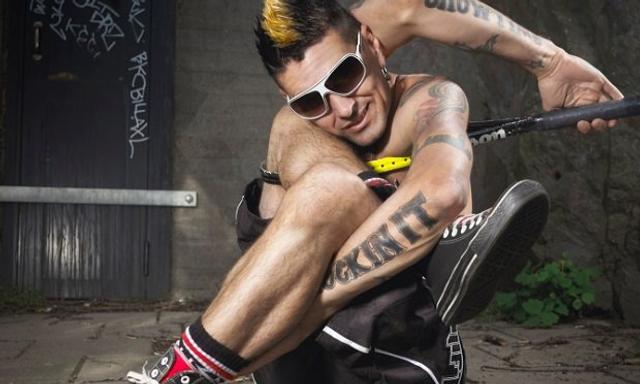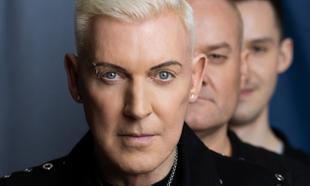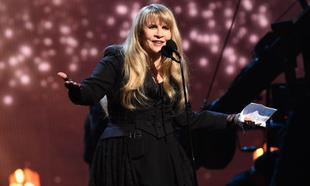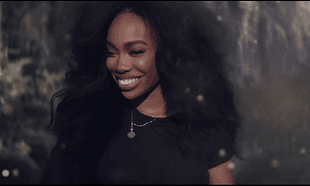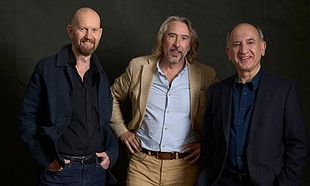Words: Philip Cummins
Alakazam, or Alan Millar as his Mum knows him, is the self-styled Human Knot; a contortionist and street performer like no other. Alakazam is one of the finalists at this year’s Laya Healthcare Street Performance Championship. We caught up with him to talk about how he learned his craft, how mobile phones and social media have impacted on his craft and how he managed to impress Sting and Bruce Springsteen.
When did you first realize your talents and that you would make a career from street performance?
Well, ever since I was a little kid, I’ve been always been able to perform all the flexibility moves, such as contortion. I didn’t really start performing seriously, however, until I was about seventeen. I started juggling, performing acrobatics, but it wasn’t until later until I realized that I could do my contortion move in my show and people will really like it. I went straight on to the street when I was seventeen.
How have your street performances been affected by social media, by camera phones / tablets? Has it been helpful or a hindrance?
Well, I've noticed that a lot more people are filming on phones and tablets and uploading footage of me without my permission, which sucks. Back in the day when I first began, if you wanted to start a street show you had to basically go and do street shows and learn how to do it by doing it. Now, you can go on YouTube, Google the name of a street performer and, basically, plagiarise their entire show and pass it off as your own. That sucks, because there's probably street performers all over the world who use parts of my act and they've never even seen my shows live; they've only ever watched them on YouTube.
.jpg)
And does it take away from the spontaneity, the immediacy and vitality of street performance?
I think so, definitely. I think that you've come up with something yourself in the moment in the show. That moment is golden and you can recreate that moment in future performances. But if you've taken that moment from someone else, you don't know how it came about; you don't know to deliver it properly, and so whenever you try to plagiarize a moment like that, what it is that you want come across as spontaneous actually comes across as contrived.
From watching some of the videos that are online, there seems to be a blending of comedy and showmanship with some of the routines that you perform. How important has it been to you to keep a balance between both elements of the show?
I was never influenced by stand comedy as such; I was more interested in street performers who were funny. The showmanship is so important to performance: you have to get the audience clapping, you have to get them cheering, because if they're not engaged by you then they find easier to turn around and walk away and that's not what you want. You want people to stay for the whole show and that's the continuing challenge.

Who were the street performers that influenced you the most when you were starting out and developing your show?
In Australia, I was influenced and helped out a lot by fellow performers, like lucky Diamond Rich, J.P. McKendry. When I first came to the U.S., I saw The Butterfly Man (Robert Nelson), Master Lee... in England, there was Nick Nicholas... those guys basically helped me out. They saw what I had and each of them in their own way helped me out and gave me advice and really helped my show along in the beginning.
The show has crossed over from the street. You were featured on Australia's Got Talent and similar such shows have given street performers a platform for their act. Has it been a release and brought you a new audience?
I find as a street performer that you don't really need that type of exposure, but the opportunity was there for me in Australia, I went for it, I did really well. I probably wouldn't do it again. I find that it's a good platform for someone who doesn't yet have a working career, but for someone who does already have a working career, it doesn't help that much. They actually end up taking a cut of everything that you make. For someone who's really talented, though - at singing, street performing - that's great. For someone who already does one hundred gigs a year, though, it's not that much of a big help.
Australia is a country that has a terrain and a climate that supports extreme sports. How important was growing up in Australia in developing your craft?
It was very important. Growing up in Australia, I was into surfacing, skating, climbing. There's always an element of danger when you're learning to street perform in Australia. The audience in Australia expects to see that element of danger. Performers that you see trained from the beginning in Australia on the street tend to be very strong performers internationally and their talent does tend to travel.
.jpg)
You have no shortage of celebrity fans. Sting and Bruce Springsteen are fans of your show. How did you meet those guys?
It was bizarre. It all came from one encounter. I was performing on the street in Sydney and Bruce Springsteen and his wife, Patti, and his bodyguards were there. After I finished performing, he gave me a few hundred bucks. I didn't realize until afterwards that I had actually picked out guys from his entourage to be in my show and he came up to me and said "You're by far the best street performer I have ever seen, you really connected, I saw what you were doing and you're doing what I'm doing: you're connecting with the audience." After that, he gave me his contact details and said to me "If we're ever in the same city again, if I'm ever touring, call me up and you can come backstage." So I've been to about half-a-dozen backstage events with Bruce and I've met people through him. Through those people I met Sting and The Police. I performed for them and I've performed for Sting about six times. So it was a chance meeting that was a like a steamroller. I'm always meeting crazily famous people when I go to the Springsteen shows. The last time I met Tom Hanks, Brian Williams (NBC Anchor). There are always famous people to meet when you're backstage and you're friends with Bruce.
Have you met not-so-famous people - ordinary Joe Soaps - while performing on the street who have left an impression on you?
Yes, definitely. You meet so many crazy, interesting people in doing what I do, people from all walks of life. And they've all connected with the show and I have, I hope made them happy in some way. It doesn't matter what religion they belong to, where they're from... it's all the same thing. They're basically there talking to you because they had a good laugh and they want to speak to you after the show to express their thanks. I love that about it.
So what are you bringing to the Laya Healthcare World Street Performance Championships in Dublin?
Well, I'm mostly a contortionist, but I also have a high pole act, too, which I'll be bringing to Dublin, some juggling and lots of comedy. I'm always writing new jokes, thinking of funny things to say to the audience. So I basically do a physically comedic show.
The Laya Healthcare Street Performance World Championships 2013 takes place in Dublin (Merrion Square, 12th - 14th July) and Cork (St. Patrick’s Street, 20th - 21st July). For more information go to www.spwc.ie
